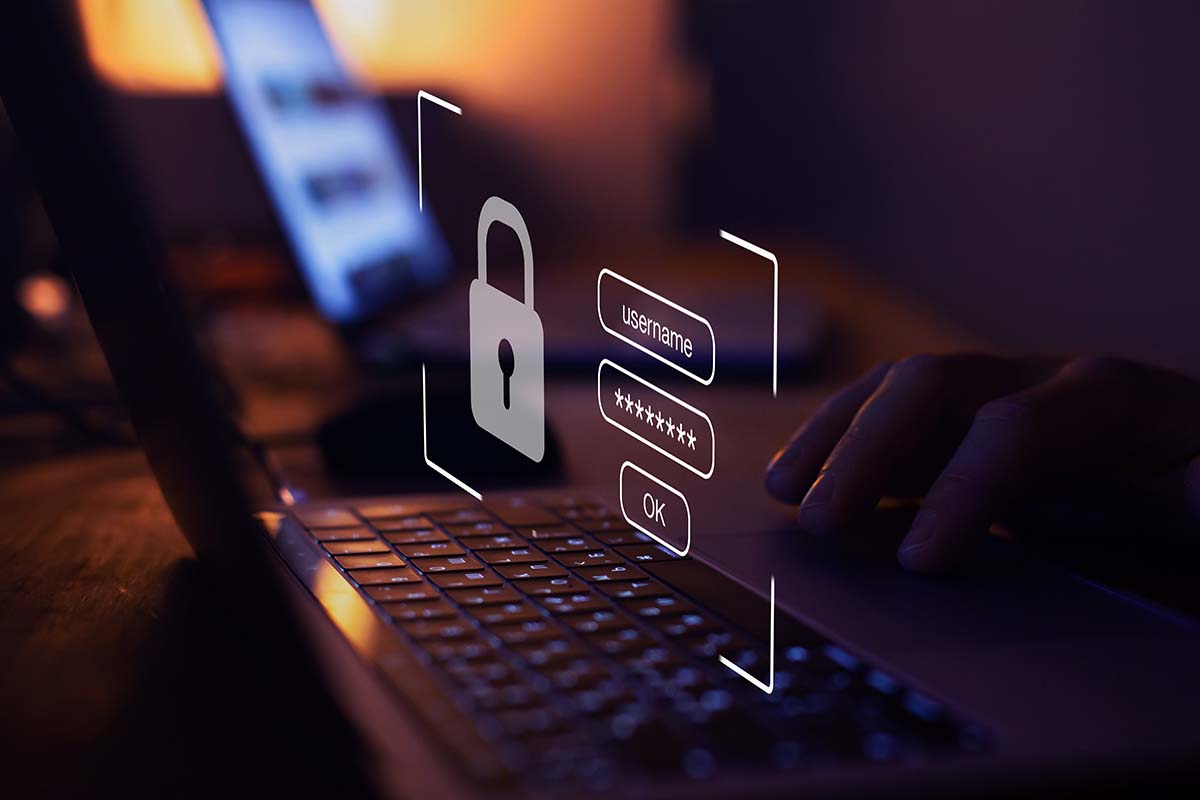What Cybersecurity Analysts Do: Roles and Responsibilities
In today’s world, cybersecurity analysts are key to protecting companies from cyber threats. But what do they do, and what skills are needed? Let’s explore the world of cybersecurity analysis and see what these experts do every day.
Key Takeaways
- Cybersecurity analysts protect companies from digital threats and keep sensitive data safe.
- They handle tasks like threat analysis, responding to incidents, assessing risks, and managing compliance.
- They need skills in programming, networking, and security tools, plus analytical and problem-solving skills.
- They must keep up with the latest security trends and best practices to protect their organizations.
- Knowing the different career paths and learning opportunities in this field helps those starting in cybersecurity.
Introduction to Cybersecurity Analyst Roles
In today’s digital world, cybersecurity analysts are key for all kinds of organizations. They protect data, networks, and systems from cyber threats. Their work is crucial for keeping an organization’s digital assets safe and ensuring things keep running smoothly.
Importance of Cybersecurity in Today’s Digital Landscape
More businesses and personal activities are online now, making cybersecurity more important than ever. Cybersecurity experts are the first line of defense. They work to stop threats that could harm an organization’s data, disrupt operations, and cause big financial and reputation losses.
Read More: Why is Cyber Security Important?

Overview of Cybersecurity Analyst Responsibilities
Cybersecurity analysts do many things, including:
- Watching and checking network traffic and system logs for security issues
- Doing vulnerability assessments and penetration tests to find and fix security problems
- Setting up and keeping security controls like firewalls and access management in place
- Working with different teams to create and follow security plans
- Keeping up with new cyber threats, best practices, and laws
- Writing reports on security incidents and advising on better security
Knowing how important cybersecurity analysts are in protecting digital assets helps businesses see the value in hiring skilled people and strong cybersecurity measures.
What Cybersecurity Analysts Do
Cybersecurity analysts are key in keeping organizations safe from online threats. They handle many tasks to keep the IT systems secure and sound. They watch over network activities and set up security measures to fight cyber attacks.
Some of the main jobs of cybersecurity analysts are:
- They keep an eye on network traffic and system logs to spot and act on security issues.
- They check for weak spots in the organization’s security setup.
- They set up and manage security tools like firewalls and access controls.
- They look into security data to find patterns that might mean a cyber threat is coming.
- They work with teams to lessen the damage from security breaches and keep things running smoothly.
- They check out and review new security tech and methods to make the organization’s defenses better.
- They write down security rules, steps, and plans to follow industry standards and laws.
Cybersecurity analysts are vital in the changing world of digital security. They play a key role in keeping an organization’s important data, systems, and infrastructure safe from bad actors. Their wide range of tasks and deep knowledge make them a crucial part of any security plan.
Read More: Different Types of Cyber Security: A Comprehensive Guide
Essential Skills for Cybersecurity Analysts
Cybersecurity analysts need both technical skills and analytical thinking. They must have a wide range of skills. These include programming, networking, and using special security tools.
Technical Skills: Programming, Networking, and Security Tools
They must know programming languages like Python, Java, or C++. These are key for automating tasks, making tools, and checking data. They also need to understand networking basics, including protocols and firewalls.
Knowing about security tools is also important. Tools like vulnerability scanners and threat intelligence platforms help them find and fix security issues.
Analytical and Problem-Solving Abilities
- They need strong analytical skills to go through lots of data and find important patterns or signs of a security issue.
- Being able to think critically and solve problems is key. It helps them come up with ways to fight cyber threats and keep systems safe.
- Pay attention to details, think logically, and solve problems step by step. These skills help them handle complex security problems.
By using both technical and analytical skills, cybersecurity analysts are crucial in protecting organizations from cyber threats. Developing these skills is important for a successful career in cybersecurity.
Cybersecurity Threat Analysis and Monitoring
In today’s digital world, cybersecurity analysts are key to protecting companies from cyber threats. They focus on analyzing threats, setting up strong security systems, and using threat intelligence to catch risks early.
They start by looking at all the threats an organization might face. This means checking past data breaches, watching for new cyber threats, and finding weak spots in digital defenses.
Security monitoring is a big part of their job. They use advanced tools to watch the network closely. This helps them spot strange activities or signs of a security breach right away. They can then act fast to lessen the damage from cyber threats.
Penetration testing, security audits, and vulnerability assessments are important tools for them. These methods help find and fix security weaknesses. This makes sure the company’s systems and data are safe from hackers.
By using their skills in threat analysis, monitoring, and risk assessment, cybersecurity analysts are crucial in protecting their companies’ digital assets. Their proactive approach helps keep the digital world safe and strong.
Read More: Exploring the Various Types of Cyber Security Threats
Incident Response and Mitigation
When a cybersecurity incident happens, the cybersecurity analyst’s role is key. They lead the incident response process. This means they take steps to stop the damage, lessen its effects, and get things back to normal.
Incident Handling and Forensic Analysis
Cybersecurity analysts are experts in handling incidents. They figure out what happened, collect evidence, and do detailed forensic analysis. They use special tools and methods to gather, analyze, and keep digital evidence safe. This helps them find out why the incident happened and how to fix it.
Collaboration with Incident Response Teams
Handling incidents well often means working with different teams like IT, security, legal, and public relations. Cybersecurity analysts are key in making sure everyone works together. They talk to stakeholders and make sure the right steps are taken to stop the incident and reduce its effects on the company.
Cybersecurity analysts use their skills in handling incidents and forensic analysis to protect their companies. They work hard to stop the bad effects of security breaches and cyber-attacks.
Risk Assessment and Vulnerability Management
Cybersecurity analysts are key in spotting and fixing security risks for companies. They look for weak spots in systems, networks, and apps. Then, they create plans to use the right security measures to fix these issues.
Identifying and Mitigating Security Risks
Understanding security risks is crucial for companies. It helps them know where they stand and what to focus on. Vulnerability assessments are a big part of this. They let analysts find and check how serious potential weaknesses are.
By knowing these weaknesses, analysts can make plans to lessen security risks. This is what vulnerability management is all about.
Effective vulnerability management takes several steps:
- Continuous monitoring and scanning of systems to find vulnerabilities
- Prioritizing vulnerabilities based on how big the risk is and how likely they are to be exploited
- Creating and putting into action plans to fix high-risk vulnerabilities
- Checking if the fixes worked by reassessing and testing again
By being proactive and thorough in assessing risks and managing vulnerabilities, companies can lower their chance of security threats. This makes them stronger and more resilient.
Compliance and Regulatory Requirements
For cybersecurity analysts, knowing and following industry standards and rules is key. It’s vital to keep an organization’s sensitive data safe. It also ensures that the company follows the law and ethical standards.
Understanding and Adhering to Industry Standards
Cybersecurity analysts need to keep up with changing industry standards and rules. They should know about the National Institute of Standards and Technology (NIST) Cybersecurity Framework. They should also be familiar with the Payment Card Industry Data Security Standard (PCI DSS) and the Health Insurance Portability and Accountability Act (HIPAA) for healthcare.
By using the right security measures and checking on compliance often, analysts can lower the risk of big fines, legal trouble, and damage to reputation from not following the rules.
Keeping up with cybersecurity compliance is a constant job that needs careful watching, keeping records, and working with different teams. Cybersecurity analysts are key in making sure their company’s security steps match up with needed standards and rules.
Cybersecurity Analyst Career Paths
As a cybersecurity analyst, you can explore many career paths. From starting to advanced specializations, there are plenty of chances for growth and learning.
Entry-level and Advanced Roles
Many start in entry-level jobs like security analyst, SOC analyst, or incident response analyst. These jobs involve checking security systems, looking at threats, and handling security issues. With more experience, you can move up to roles like:
- Penetration tester: Simulating cyber attacks to find and fix weaknesses
- Security Architect: Creating and setting up secure networks
- Cybersecurity Manager: Leading security operations and managing analyst teams
- Cybersecurity consultant: Giving expert advice and solutions to companies
Certifications and Continuous Learning
To keep up in the fast-changing world of cybersecurity, it’s key to keep improving your skills and knowledge. Getting certifications like Certified Information Systems Security Professional (CISSP), Certified Ethical Hacker (CEH), or CompTIA Security+ shows your skills and helps you stand out in the job market.
Also, taking ongoing training, going to industry events, and keeping up with new security trends and tech is important. This helps cybersecurity analysts stay ahead and adjust to the ever-changing cybersecurity scene.
Read More: What is the Main Role of Cyber Security?
Conclusion
Cybersecurity analysts are key to protecting companies from digital threats today. They use their skills and knowledge to find and fix security risks. This keeps businesses running smoothly and protects important digital assets.
The need for skilled cybersecurity analysts is growing. Companies see how important strong cybersecurity is. Analysts keep up with new security trends and improve their skills. This makes them vital for digital security.
Cybersecurity analysts work on many things, like threat analysis and incident response. They help keep organizations safe from cyber threats. Their hard work lets people and businesses use the internet safely and worry-free.
FAQ
What are the main responsibilities of a cybersecurity analyst?
Cybersecurity analysts protect an organization’s digital assets. They do this by monitoring networks, checking for vulnerabilities, responding to incidents, and setting up security measures. These steps help prevent and reduce cyber threats.
What technical skills are required to be a successful cybersecurity analyst?
To be a good cybersecurity analyst, you need technical skills. This includes knowing about programming, networking, and security tools. It would help if you also were good at analyzing data and solving complex security problems.
How do cybersecurity analysts identify and mitigate security risks?
Analysts find and fix security risks by checking for weaknesses in systems and networks. They then use security controls and measures to lessen these risks. This helps protect the organization from cyber threats.
What is the role of a cybersecurity analyst in incident response?
When a security issue happens, analysts lead the response. They do forensic analysis, document the incident, and work with teams to stop the damage. Their goal is to get things back to normal quickly.
How do cybersecurity analysts ensure compliance with industry standards and regulations?
Analysts make sure their organization follows industry standards and laws. They keep up with new laws and put in place the right controls. This helps them stay compliant.
What are the career paths and growth opportunities for cybersecurity analysts?
Cybersecurity analysts have many career paths, from entry-level to advanced roles. They can grow by learning more and getting certifications. This makes them more skilled and valuable in the job market.






